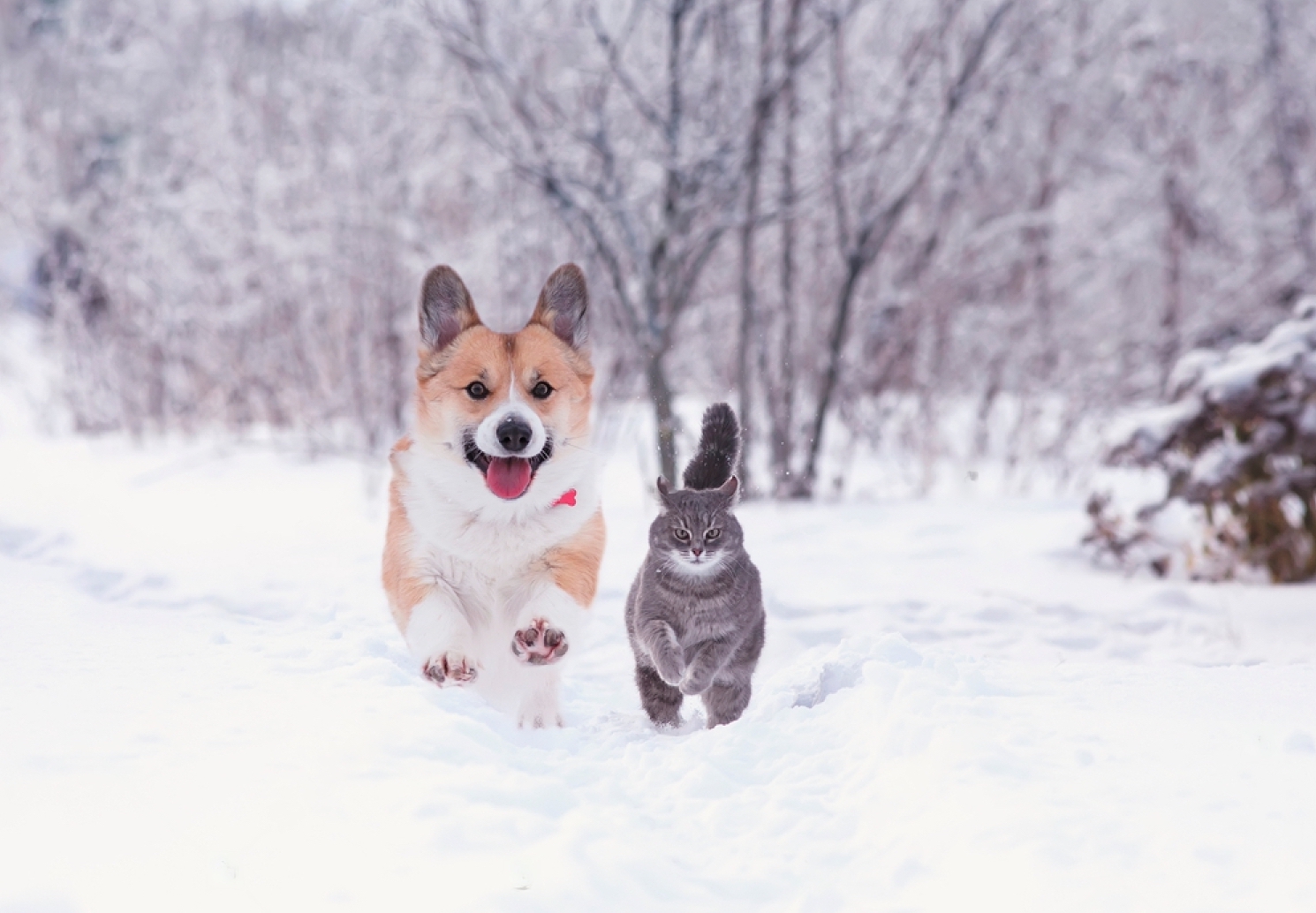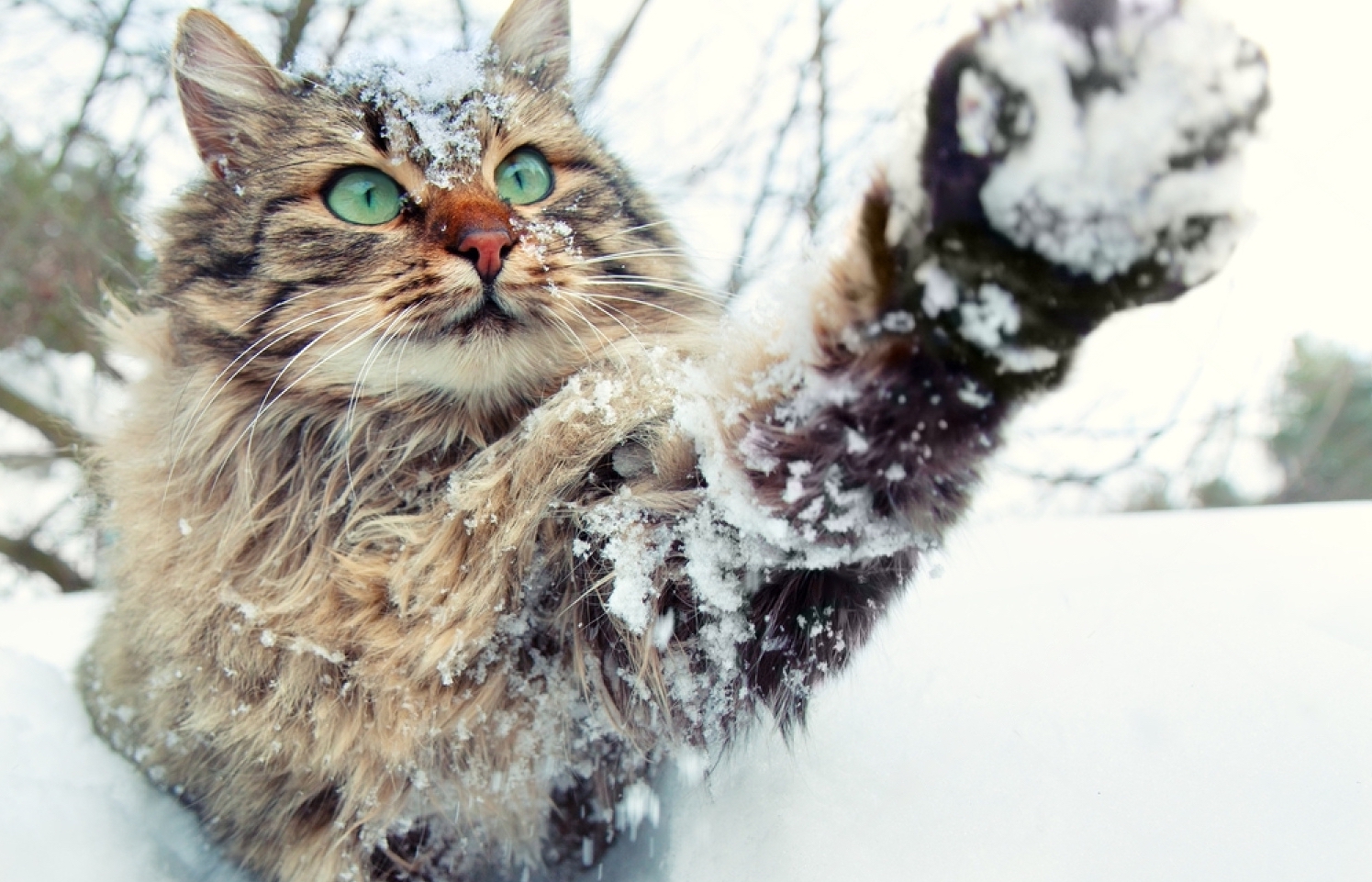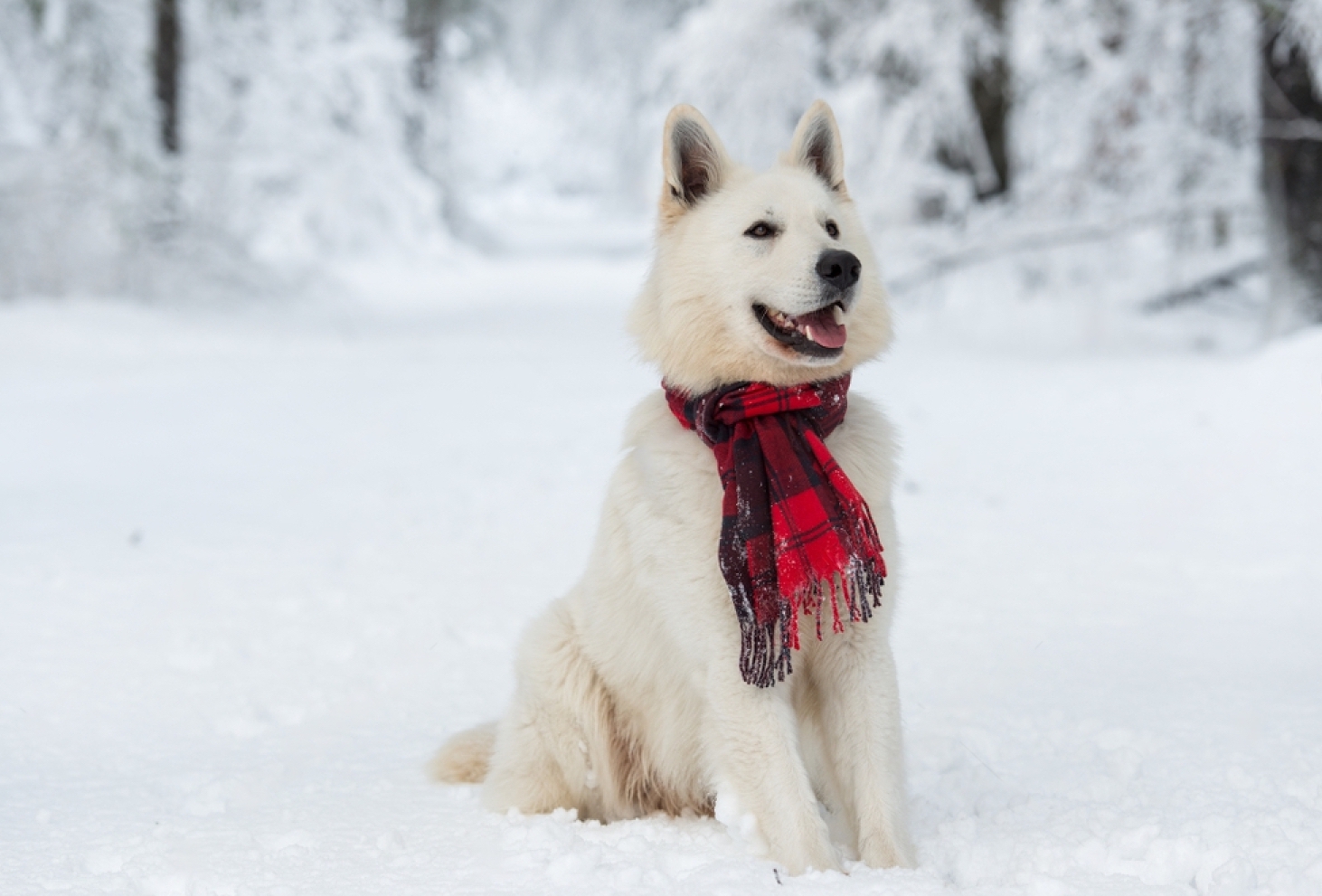Winter Сare Tips for Cats and Dogs

The fall and winter seasons pose unique challenges for pet owners. It’s essential to ensure that your dogs and cats are well-prepared and protected from the cold weather. This comprehensive guide covers all aspects of pet care during these colder months.
General Health and Wellness in Cold Weather
Preventive care is crucial in the colder months. Schedule veterinary check-ups in the fall to catch any health issues that might worsen in cold weather. Vaccinations and deworming are important for both cats and dogs as they prepare to face the winter months.
At home, adjust your pet’s diet to account for increased energy expenditure in cold weather. Dogs and cats burn more calories to maintain body heat. Increase their food intake slightly, focusing on a balanced diet rich in carbohydrates and proteins. However, monitor their weight closely to avoid obesity.
Special Considerations for Cats in Winter
Many cats have access to the outdoors throughout the year. Their tolerance for cold weather varies based on breed, fur length, and health.

Cats with short fur or health issues should have limited outdoor exposure in winter to avoid respiratory problems like pneumonia or kidney infections. Outdoor cats generally grow thicker coats in winter, providing them with natural insulation. However, gradual acclimatization to cold temperatures is essential.
For those who worry about their cats at night, consider installing a cat flap for free movement. If that’s not an option, create a warm, insulated outdoor shelter with materials like polystyrene, straw, and blankets.
Be cautious about water bodies like ponds in winter. Thin ice can be a hazard, so consider fencing off these areas. Also, be careful with cat clothing or collars, as they can lead to accidents if the cat gets caught.
Winter Care for Dogs
Dogs, especially those that spend a lot of time outdoors, require specific care in winter. Apply protective ointments or balms to their paws to shield them from cold surfaces, ice, and harmful substances like road salt.

For active dogs or those involved in dog sports, consider special footwear like “valenki” boots to protect their paws. However, this might not be necessary for everyday walks in urban areas.
Keep your dog active and moving during walks to maintain warmth. For small, old, or thinly-coated dogs, invest in functional, warm clothing. Avoid letting your dog play with snowballs or sticks, as these can cause injuries or digestive problems. Prevent your dog from eating snow, which may contain harmful substances like road salt.
After walks, thoroughly clean your dog’s paws and check for injuries or trapped debris. Apply a soothing cream to keep their paws healthy. Avoid frequent baths in winter, as this can strip the skin of natural oils, reducing cold protection. Regular brushing is important to remove dead undercoat and maintain healthy skin and fur.
Creating a Comfortable Environment Indoors
Ensure your home is a warm, comfortable haven for your pets during winter. Provide extra bedding and blankets for them to snuggle into. Keep their sleeping area away from drafts and cold floors.
Consider using a humidifier if your home gets particularly dry in winter. Dry air can affect your pet’s skin and respiratory system.
Nutrition and Hydration
Proper nutrition is essential in winter. Provide a balanced diet rich in essential nutrients. Ensure continuous access to clean, unfrozen water to keep your pets well-hydrated.
Remember, winter care for pets goes beyond just keeping them warm. It’s about adjusting their entire care routine to ensure they stay healthy and comfortable throughout the season. Your attentive care will help your pets enjoy the winter months safely and happily.
How often should I wash my pet in winter?
In winter, it is not recommended to wash cats and dogs too often, as this may cause them to become overcooled. If your pet gets very dirty, it is better to use dry shampoo or special wet wipes to clean the fur.
How do I protect my pet from hypothermia during the winter season?
During the winter season, it is important to provide your pet with adequate shelter, a warm bed, and warm dog clothing. You should also limit the amount of time your pet spends outside in cold weather.
Can I feed my pet other foods in the winter?
To keep your pet healthy, it is important to follow the same diet that you use during the warm season during the winter. However, you can add more nutritious ingredients to their diet, such as chicken broth or chunks of meat.
What type of activity is appropriate for my pet during the winter season?
During the winter season, it may be too cold outside for long walks. Instead, you can do indoor activities such as playing or exercising. You can also go indoors, such as petting zoos or halls.
What type of dental care for my pet is important in the winter?
During the winter season, your pet may get less exercise outdoors, which can lead to dental and gum health problems. It’s important to continue brushing your pet’s teeth regularly and using chew toys to help them maintain healthy teeth and gums.




